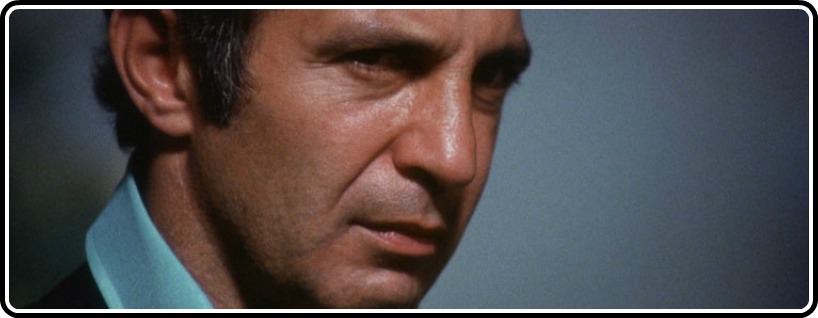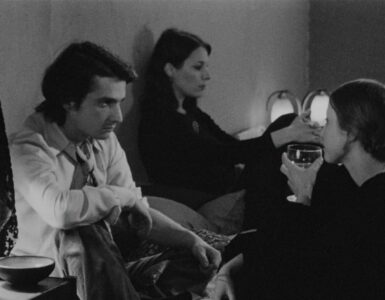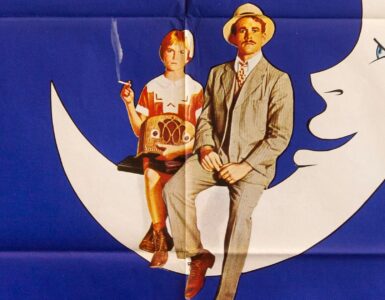Right from the opening handful of frames, one discovers that John Cassavetes’ best known film, or at least the film many people think of when his name is brought up in conversation, The Killing Of A Chinese Bookie, is unlike anything the director did prior, or would do in its wake.
Jumping from the world of proto-melodramatic relationship dramas to something a tad closer to the realm of film noir, Cassavetes switches things up for what is ostensibly one of his biggest stylistic and intellectual leaps that one would see throughout his career.
Leaving the realm of broken marriages, insane significant others or the bohemian culture of 50s New York City, Cassavetes takes to the world of a low-rent strip club owner in LA who becomes indebted to a gangster after losing $20,000 in a card game. With no money to his name and no one looking to help him out with this debt, he is forced to take the life of a Chinese bookie with the hopes of clearing his books of the big debt. However, when things are uncovered that prove this alleged hit as something far deeper and far more troubling, lives get put on the line, and what follows is a rather solid, if oddly uninteresting and unwieldy bit of post-noir filmmaking.
This marks, at least within this Five Films box set that Criterion so wonderfully upgraded to Blu-ray late last month, the point in Cassavetes’ career where, at least aesthetically, the director began getting in his own way. Featuring only a handful of truly memorable shots and some of the least inspired photography in any of Cassavetes’ films (there is actually no cinematography credit found on this film), the film lacks much of the energy of his earlier work, or even the unbridled energy found within many of the final frames of the film that came prior to this, A Woman Under The Influence. Despite a score that keeps the film afloat and pace chugging along, the best thing that can be said about the film visually is that Cassavetes has a way with crafting an ever evolving film that has rarely been matched. At its best, the film is a slow burn of a neo-noir. Oddly lyrical in its pacing, the film builds and, as previously mentioned, evolves continuously starting out as a character study and making its way to the realm of pure crime noir. With the central hit being one of the best and most vital moments of the film, the picture takes a decided turn following, only to find its stride for a wonderfully kinetic final act.
One of Cassavetes’ more subdued films, that bleeds directly into the performances as well. Ben Gazzara stars here as our lead, and is without a doubt this film’s greatest attribute. Turning in yet another top notch performance in what is very much a definitively improvisational picture from Cassavetes. As with many of the director’s films, the script is ostensibly nothing more than a series of outlines, and while that is felt in many ways here, Gazzara’s performance is so wonderfully full of vitality and life that it truly turns the film into what looks and feels like a jazz-influenced neo-realist noir. Definitively esoteric in every imaginable way, the film feels meandering and wandering, but with Gazzara’s lead turn giving the film a real emotional root and Seymour Cassel as his foil, the film grows from a sloppy mess of a drama into something of a palpable and still relevant bit of neo-realist noir.
But one would also be remiss if the name Bo Harwood were not mentioned, especially with Criterion’s new restoration of his score. Harwood’s score is as important to this film as any of the performances in a film like A Woman Under The Influence or the black and white grain in a film like Faces, and proves Cassavetes and Harwood to be a breathtaking duo. The audio-side of this new Blu-ray restoration is absolutely stunning, and gives new life to what is very much one of this era’s greatest bits of music. Visually, the film is fine, but lacks the power the black and white of the set’s first two films, or the energetic hues of the third, turning this into a great, but underwhelming visual experience. There are, however, two cuts of the film on here, both of which are worth seeing. Cassavetes cut the film down in 1978 from its original 135 minute runtime seen in its 1976 initial release down nearly thirty minutes for its re-release two years later. I personally prefer the shorter cut, not only in knowing that Cassavetes himself cut the film down, but the material excised from the film was seemingly superfluous in the first place. It is a tighter (still meandering, but go with it, it’s a better film) picture, and its simply the better of two features. Toss in interviews with Cassavetes, Ben Gazzara and producer Al Ruban, and you have a Blu-ray that itself proves to be a release well worth digging deep into. The film at its core is a wandering, mixed bag of a neo-noir, but an interesting step for a director who, himself, never allowed he or his pictures to be classified as comfortable. Unlike anything you’ve ever seen, this may be a mess, but if only ever mess were this enthralling.






![Bergman Island (The Criterion Collection) [Blu-ray]](https://criterioncast.com/wp-content/uploads/2022/11/bergman-island-the-criterion-collection-blu-ray-400x496.jpg)
![This Is Not a Burial, It’s a Resurrection (The Criterion Collection) [Blu-ray]](https://criterioncast.com/wp-content/uploads/2022/11/this-is-not-a-burial-its-a-resurrection-the-criterion-collection-blu-ray-400x496.jpg)
![Lars von Trier's Europe Trilogy (The Criterion Collection) [The Element of Crime/Epidemic/Europa] [Blu-ray]](https://criterioncast.com/wp-content/uploads/2022/11/lars-von-triers-europe-trilogy-the-criterion-collection-the-element-of-400x496.jpg)
![Imitation of Life (The Criterion Collection) [Blu-ray]](https://criterioncast.com/wp-content/uploads/2022/11/imitation-of-life-the-criterion-collection-blu-ray-400x496.jpg)
![The Adventures of Baron Munchausen (The Criterion Collection) [4K UHD]](https://criterioncast.com/wp-content/uploads/2022/11/the-adventures-of-baron-munchausen-the-criterion-collection-4k-uhd-400x496.jpg)
![Cooley High [Criterion Collection] [Blu-ray] [1975]](https://criterioncast.com/wp-content/uploads/2022/11/cooley-high-criterion-collection-blu-ray-1975-400x496.jpg)